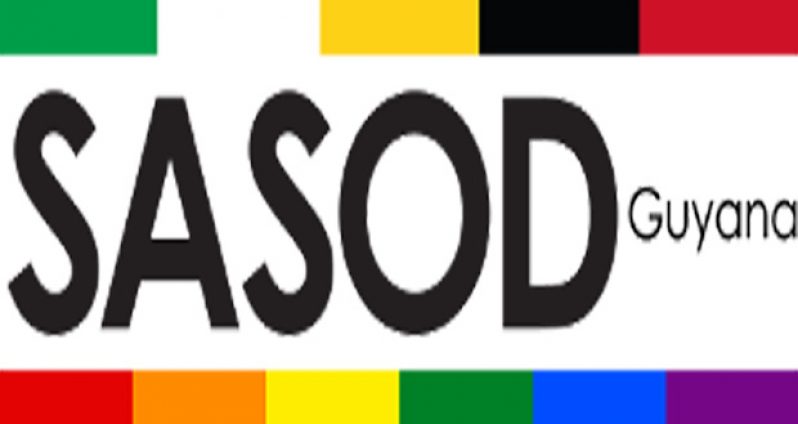– SASOD makes robust submission
IN observance of World AIDS Day 2015, the Society Against Sexual Orientation Discrimination (SASOD) made a robust submission to the National Dialogue on HIV and the Law.
The National Dialogue is set to begin on December 9 and culminate on December 10, Human Rights Day.
SASOD’s submission focuses on the first-listed thematic area of the call for submissions: “Sexual Orientation and Gender Identity”.
REPEAL ARCHAIC LAWS
In the submission, SASOD renewed its call for the repeal of archaic laws which criminalise same-sex intimacy and cross-dressing – a position which the organisation has been advocating at local, national and international levels for over 12 years.
These and other issues related to human rights and key populations affected by HIV will form part of the two-day national conference being spearheaded by a 10-member advisory committee of government ministries and civil society organisations in equal ratio, with technical and financial support from the United Nations Development Programme (UNDP).
The National Dialogue will be a two-day meeting for a range of stakeholders — primarily from government and civil society — to share insights and experiences on HIV, law and human rights.
It is intended to be a space for policy discussions where those who influence, write and enforce laws, and those whose lives are impacted by them, engage in constructive, frank and pragmatic dialogue.
During the conference, legal and human rights issues related to HIV in Guyana will also be up for discussion. According to SASOD, it sees the National Dialogue as a timely opportunity to formulate key recommendations for law and policy reform that advance human rights in Guyana.
“Three decades of experience have shown that the promotion and protection of human rights are essential for preventing HIV transmission and reducing the impact of HIV and the burden of AIDS. A rights-based approach to HIV prevention, treatment and care, coupled with an enabling legal environment that protects key populations whose rights are routinely violated, helps to reduce vulnerability to HIV, ensure that HIV services are accessible to those most-at-risk and facilitates the participation of key affected communities in planning and implementing effective interventions on their own behalf,” the society said in a press statement.
PUNITIVE LAWS
On the other hand, SASOD pointed out that the laws that criminalise HIV transmission, sex between men, sex work and cross-dressing are major barriers to accessing HIV services and interventions.
“Punitive laws also reinforce stigma and discrimination and hinder effective grassroots responses to the HIV epidemic in Guyana.”
Over the last year, the society has expanded its capacity to include HIV testing services at its social events, creating safe places for Lesbian, Gay, Bisexual and Transgender (LGBT) persons to receive HIV prevention education, testing and referral services.
“Though the initial reach of this focus has been successful, findings from SASOD’s consultation among key populations inform us that much more needs to be done to ensure all Guyanese are knowledgeable of their risks, rights and services available to them. Recent findings also support the need for advocacy and outreach across the broad spectrum of key populations, primarily in the case of sex workers,” SASOD said.
“Discriminatory and commonly misunderstood laws prevent MSM, sex workers and transgender persons from seeking assistance from health, law enforcement or other state-provided social services. And even when they do, these punitive laws inhibit persons from disclosing their sexual orientation, gender identity and occupation for fear of maltreatment or prosecution. Discriminatory laws and the institutional prejudices emanating from them leave these populations feeling unprotected and without recourse,” it added.
Guyana has made significant strides in reducing HIV prevalence among the general population. But prevalence remains significantly higher among key-affected populations – an issue which can be significantly reduced with the help of the government.
“If the APNU+AFC administration is seriously committed to achieving this, then the government must demonstrate that it has the political will and bold leadership to make the necessary policy and legal changes that will create the enabling environment to sustain epidemic control. Guyana can see an end to AIDS. But we need our leaders to act now to make this a reality,” SASOD asserted.




.png)









